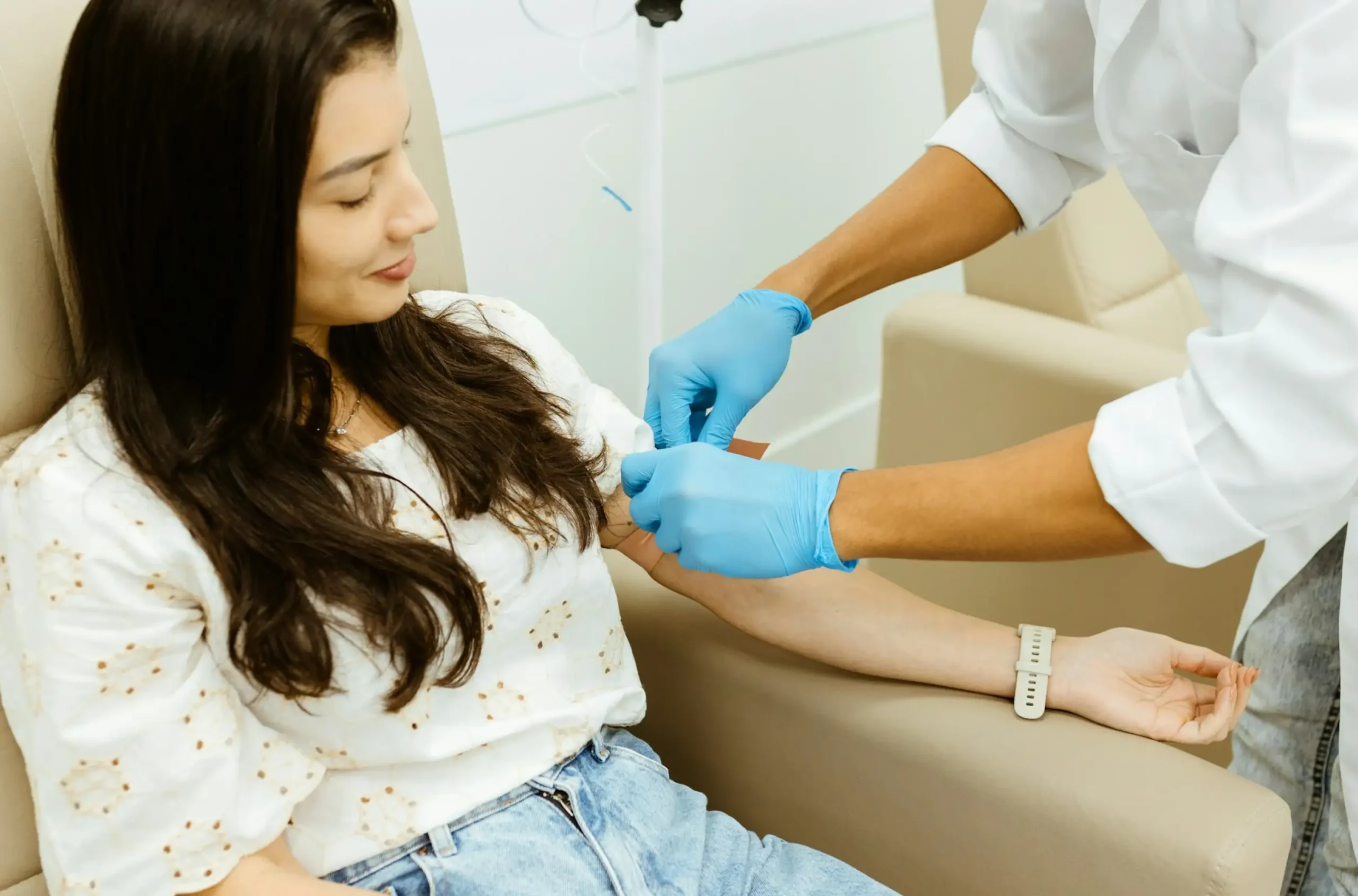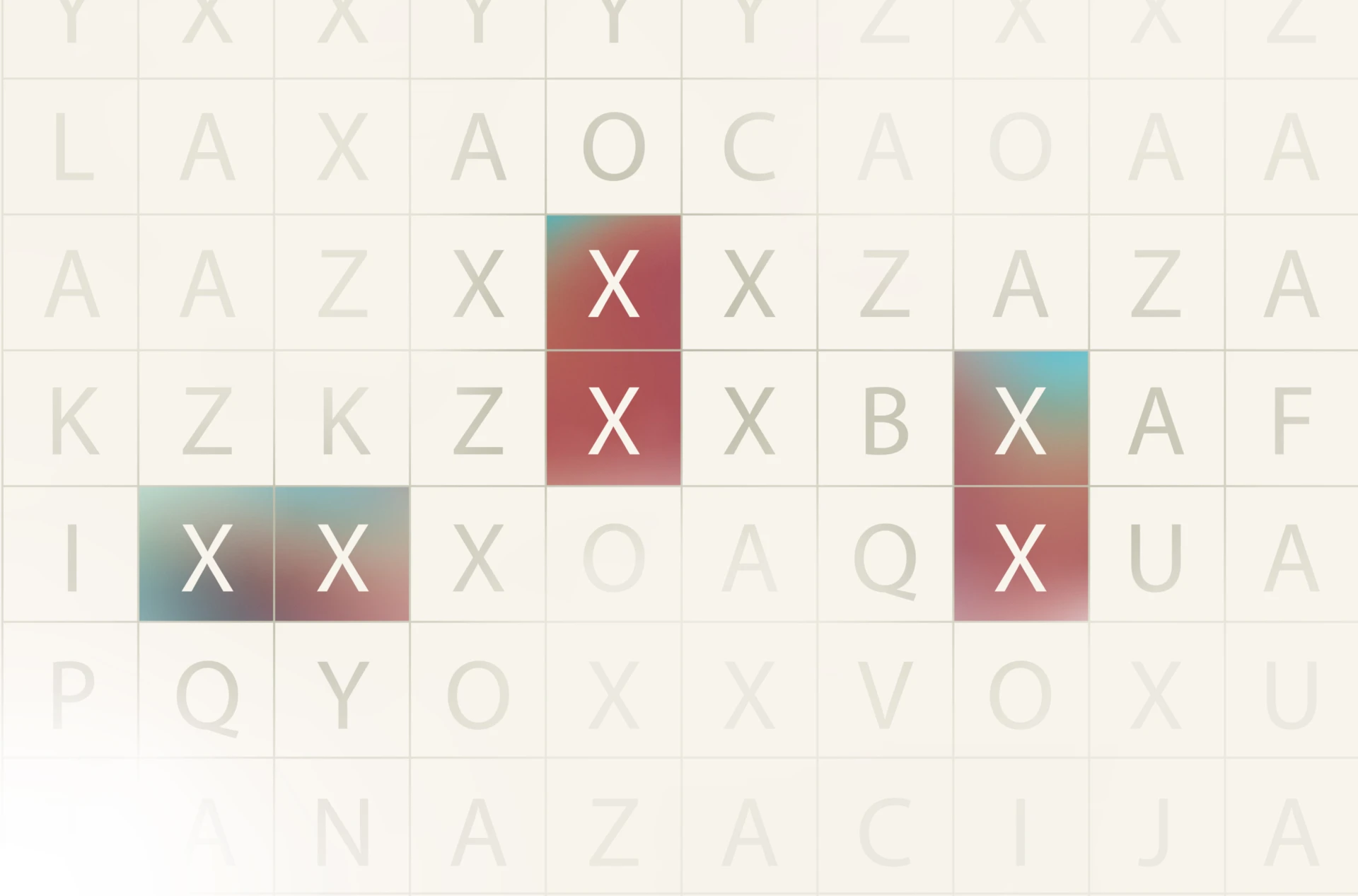Content table
Have you ever wondered how doctors know if someone is pregnant early on? Earlier than an at-home pregnancy test can tell?
There’s something in the body called human chorionic gonadotropin, or hCG for short. This hormone is a big clue that a fertilized egg has gotten implanted in the uterine wall.
When a doctor does a pregnancy test, they are looking for this hCG. And a beta hCG test is a good way to confirm pregnancy.
While a positive beta hCG test looks different from person to person, in general, a beta hCG level under 5 mIU/mL rules out pregnancy.
Let’s take a deeper look to better understand a beta hCG test.
Key Takeaways
- Beta human chorionic gonadotropin (hCG) is a hormone that helps support early pregnancy. It helps the body make progesterone.
- In a normal pregnancy, hCG levels usually go up quickly at first. They usually double about every 48 hours until 6-7 weeks. The rate slows down until week 10-11, when they level off.
- Human chorionic gonadotropin hormone tests help doctors watch how a pregnancy is progressing.
- Sometimes, a positive hCG test can happen for reasons other than pregnancy. These could be certain growths that make hCG.
- Your healthcare provider can check for potential complications. This is to ensure you and your perfectly healthy baby are doing well.
What is Beta hCG?
Before we get into beta hCG, let’s review some basics.
Once fertilization occurs, specialized cells start to make hCG (Human Chorionic Gonadotropin). This pregnancy hormone has an important job in early pregnancy. It helps sustain the corpus luteum.
The job of the corpus luteum at this time is to make progesterone and ensure that things remain optimal for the developing baby.
The two parts of hCG
Human chorionic gonadotropin (hCG), like many hormones, is made up of two smaller subunits:
- An alpha subunit (ɑ)
- A beta subunit (β)
The alpha part looks similar to the alpha parts of other hormones, such as LH, FSH, and TSH.
But beta hCG is special and unique to the hCG hormone. So, measuring how much of it is in the blood gives doctors an accurate way to tell if someone is pregnant.
In case of pregnancy, beta hCG levels can be found in the blood sample as early as 8-10 days after ovulation.
Read more: How Long After Implantation Does hCG Rise?
You can also find the beta hCG subunit in urine. That’s because your kidneys get rid of it when you pee. This is how home tests for pregnancy work. They can usually detect hCG in urine after 12-14 DPO (days past ovulation).
Uncertain about how many DPO you are?
A fertility monitor like Inito can help you figure this out. Inito tracks 4 key fertility hormones in your urine – estrogen, LH, PdG (urine metabolite of progesterone), and FSH to track and confirm ovulation. So by knowing when you’re ovulating, you can easily figure out how many DPO you are, and when’s the best time to take a urine pregnancy test.
Read more: How Soon After Ovulation Can You Test for Pregnancy?
How is Beta hCG Tested?
Beta hCG can be tested in both urine and blood. But, a blood test is usually able to find hCG earlier than a urine test.
Here’s a quick look at blood (serum) tests versus urine tests.
Serum β-hCG | Urine β-hCG |
Early detection ( 8-10 DPO) | Late detection (12-14 DPO) |
Higher sensitivity (less than 10 mIU/mL) | Lower sensitivity (20–25 mIU/mL) |
Requires a lab test with the help of a professional | Can be done with at-home pregnancy tests |
More expensive | More affordable |
Know more: Blood vs Urine Hormone Test for Fertility
What are the Normal Values for Beta hCG?
The amount of beta hCG in your blood usually goes up as the pregnancy progresses. If the hCG levels are increasing correctly, it signifies a healthy pregnancy.
Your serum hCG levels may look something like this:
Week # | hCG Blood Levels (mIU/mL) |
3 | 5-72 |
4 | 10-708 |
5 | 217-8,245 |
6 | 152 – 32,177 |
7 | 4,059 – 153,767 |
8 | 31,366 – 149,094 |
9 | 59,109 – 135,901 |
10 | 44,186 – 170,409 |
Read more: Pregnancy Test Progression: What Should It Look Like?
Usually, in a healthy pregnancy, hCG levels rise quickly. They double about every 48 hours in the first few weeks, and usually peak around week 10-11 of pregnancy.
But remember — these numbers are just a guideline. hCG levels can be different for different people. So, doctors don’t just look at the numbers alone to see if a pregnancy is going well. Rather, they focus more on the trend of your hCG levels.
As long as your hCG levels are rising at least 66% every 48 hours, it’s a sign of a healthy pregnancy.
Read more: Pregnant but hCG Rising Slowly: What to Know
What does a Positive or Negative Test Mean?
Looking at hCG levels helps doctors figure out if someone is pregnant. It also helps them determine if there might be any problems with the pregnancy.
For pregnancy:
- A positive beta hCG test (blood) = above 25 mIU/mL. This usually means you’re pregnant.
- A negative beta hCG test (blood) = below 5 mIU/mL. This usually means you’re not pregnant.
- If the results are unclear, you may need to repeat this test in about a week.
Keeping an eye on hCG levels during pregnancy can help doctors see how the pregnancy is progressing. It also helps them stay on the lookout for any issues.
Some studies suggest that high hCG levels in the second trimester might be linked to issues with the pregnancy. Regular monitoring can help with issues such as this. It allows your healthcare provider to spot problems early on and hopefully treat them to ensure a healthy pregnancy.
It’s important to note that sometimes, a beta hCG test can also give a false positive or a false negative pregnancy test. Here are some reasons why:
False Positive | False Negative | |
Cause |
|
|
Read more: Positive Pregnancy Test Then Negative Next Day?
*What exactly is the hook effect?
It can cause a false positive even when someone is very pregnant. This happens in blood tests when the hCG levels are super high, like in twin or multiple pregnancies, or in later pregnancy.
The high levels make it hard for the test to form the two antibodies that make a “sandwich” around the hormone. These two antibodies are needed to measure the hormone correctly. And when it can’t measure the hormone, it can give a false negative.
What to Do If You’ve Tested Positive for a Beta hCG Test?
So, you’ve just gotten your hCG test results and they’re positive. Here are some things you should do to make sure your pregnancy test results are correct.
Retest for confirmation
Taking a second pregnancy test can help make sure the first one wasn’t a mistake.
Choose a quantitative test
At-home beta hCG tests are handy. But they only tell you whether hCG is present (qualitative).
A quantitative pregnancy test (blood test) can give you the exact amount of beta hCG in your blood. These hCG test results can give your doctor more information.
Continue to monitor hCG levels
If you’re pregnant, hCG levels usually rise quickly in the first few weeks.
Checking your beta hCG levels with another blood test a few days later can help confirm pregnancy. This also helps to see if the pregnancy is progressing normally.
Follow up with an ultrasound
Even though hCG tests are good at finding pregnancy, an ultrasound can help see where the pregnancy is growing.
This is important to rule out an ectopic pregnancy.
Usually, an ultrasound can show a gestational sac (which holds the developing baby) in the uterus several weeks after a positive test. Ultrasound findings are another key piece of information for you and your healthcare provider.

FAQs
Usually, having twins makes hCG test results show even higher levels than with just one baby.
However, in some very rare cases, really high hCG levels might confuse some pregnancy tests and cause a false negative. This is due to the hook effect we talked about earlier. And it can happen with twins.
But most women with twins will get a positive pregnancy test.
Know more: HCG Levels Twins: Key Indicators for Twin Pregnancy
After fertilization, specialized cells start to make hCG. You can often detect hCG in your blood about 8-10 days DPO. This is around the time implantation happens for most women.
Implantation bleeding is light spotting that can happen around the time the fertilized egg attaches to the uterine wall. It doesn’t happen to everyone. But if it does happen, it’s usually about 6-12 days after ovulation.
It’s possible to get a faint positive pregnancy test around the time of implantation bleeding. That’s because hCG starts to rise right after implantation. This is especially true with a sensitive beta hCG blood test.
However, don’t be worried if you get a negative test. It’s still early on, so your hCG levels may be too low to be detected by an at-home pregnancy test.
Implantation typically occurs around 8-10 DPO, so you can usually get a positive serum beta hCG test around this time.
For a urine test to be positive, it usually takes a bit longer (around 15 DPO).
Testing closer to the time of your missed period will give you the most reliable test results, especially with a home test.
It’s possible for hCG levels to rise even if you’re not pregnant. Here are some things that can cause them to rise:
- Certain types of tumors or cancer. This could be gestational trophoblastic disease, germ cell tumors, or other cancers.
- A recent pregnancy loss. After a miscarriage or ectopic pregnancy, it can take time for hCG levels to go back down to zero.
- Some fertility treatments. Treatments that involve injecting hCG to trigger ovulation can cause a temporary rise in hCG levels.
- Antibodies. It’s rare, but certain antibodies in the blood can mess with the hCG test and cause a false positive.












